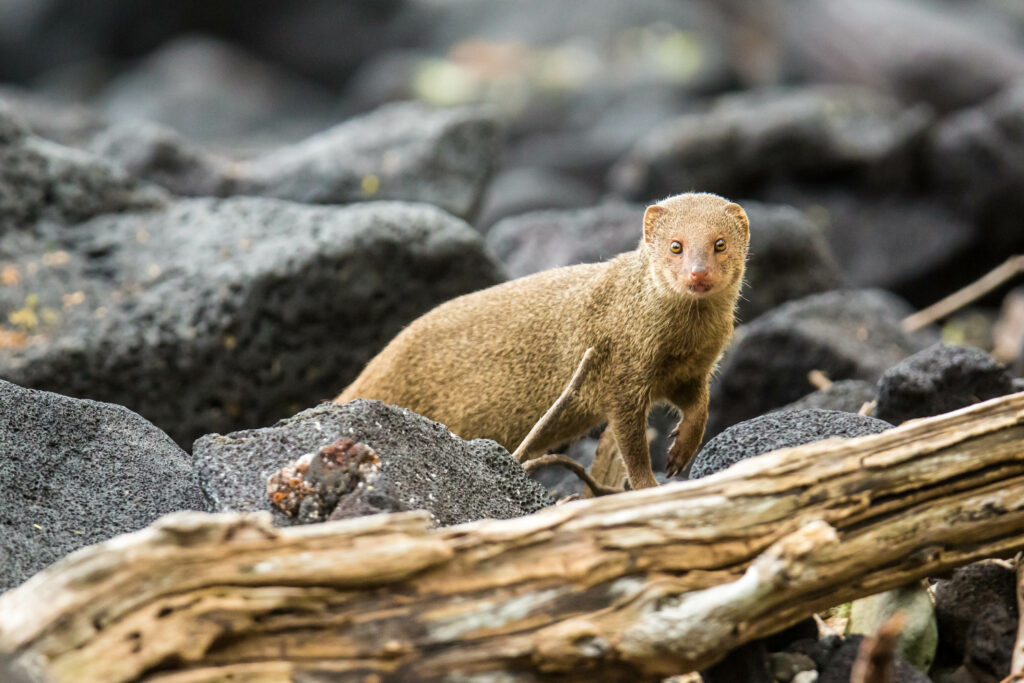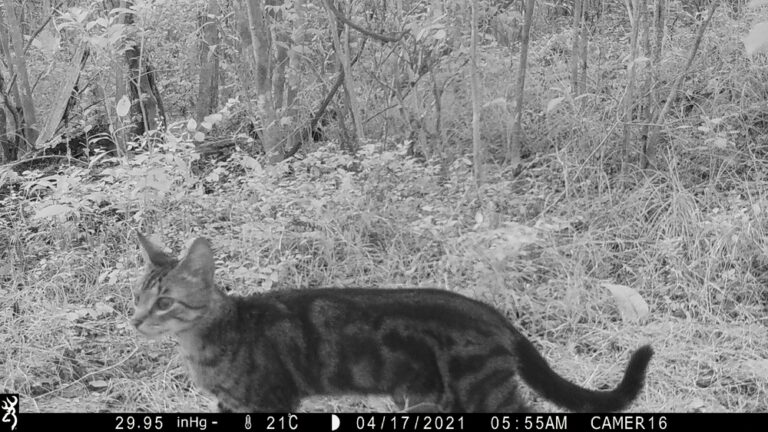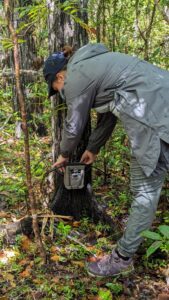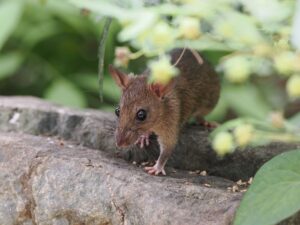
The Caribaea Initiative association, which has been committed to combating invasive alien species for years, has just launched its most ambitious project to date: CIMBA. This project aims to better understand and control the impact of exotic mammals on biodiversity in the Caribbean, a significant threat that requires a multidisciplinary approach combining research, action, and awareness.
Invasive alien species: a growing threat to Caribbean biodiversity
Invasive alien species (IAS) currently represent one of the major threats to biodiversity worldwide. Their impact is devastating in island ecosystems, whose characteristics make the species that inhabit them particularly vulnerable to this threat. Introduced predatory mammals, in particular, threaten a wide range of native Caribbean species, such as endemic birds and small reptiles.
For several years, Caribaea Initiative has placed the study and fight against IAS at the heart of its concerns. With projects such as MERCI, devoted to several species of exotic reptiles, and DEVIMTOR, focusing more specifically on freshwater turtles, the association has developed solid expertise in this area. As part of some of our other projects, such as the project ESPACYPA dedicated to the study of game bird species, exotic mammals are already the subject of parallel data collection, notably through the use of wildlife camera traps. All these projects have given us the perspective, experience and expertise necessary to embark on a larger-scale project, this time dedicated to exotic predatory mammals: the projet CIMBA.

The CIMBA project: an unprecedented ambition

Launched last month, the CIMBA project (“Control of the Impact of Exotic Mammals on Biodiversity in the Antilles”) is the most ambitious project to date led by the association. Combining multiple and complementary approaches, its objective is to develop and implement a coordinated strategy to combat the impact of invasive exotic mammals in several territories of the Caribbean islands. For three years, part of our team, reinforced occasionally through the recruitment of new staff, will be largely mobilized on this project.
In line with our mission to train young researchers, the CIMBA project will also enable the hiring of Caribbean students for their master’s internships, as well as at the doctoral level. Yuna Mélane, a Guadeloupean student we have been supporting since her master’s degree, which was already dedicated to IAS, began her thesis this summer on invasive alien mammals, the conduct of which is closely linked to the CIMBA project.
The project also has a significant collaborative dimension across the Caribbean, being carried out in partnership with two local organizations from different territories, with whom we work to coordinate actions and share knowledge: the FOKAL Foundation in Haiti and Grupo Jaragua in the Dominican Republic.
This new project also allows us to extend our collaboration with the Interreg Caraïbes program, which has renewed its trust in us following the success of the previous MERCI project, and provides substantial financial support, essential for the implementation of an action research program of this scale.
The main stages of the CIMBA project
The CIMBA project is based on four key areas, each addressing the issue from complementary perspectives.
The first phase will involve conducting an in-depth analysis of the spatial distribution of four species of exotic predatory mammals (rats, mongooses, dogs, and cats) and determining their effects on local biodiversity. This phase includes studies in various protected areas in Guadeloupe, Haiti, and the Dominican Republic, using camera traps and analyzing the diets of some of these species to better understand their impacts.

Optimizing control actions is a second important area. In partnership with natural area managers, various control techniques will be tested and improved to maximize their effectiveness while reducing unwanted impacts.
As the information collected is useful for all Caribbean territories, a third component will be devoted to regional coordination, particularly with our project partners. Various communication initiatives will be implemented, and a network of stakeholders will be established to promote knowledge sharing and coordinate efforts at the regional level.
Finally, a broad awareness campaign will inform local populations about the ecological and health threats linked to the proliferation of exotic predatory mammals. This approach aims to encourage collective support for control measures, which are essential to the project’s success.
An important project for Caribbean biodiversity
The CIMBA project, launched last month, offers significant opportunities for conservation. By combining science, concrete actions, and awareness-raising, we hope to make a significant contribution to protecting Caribbean biodiversity, while remaining true to our goal of training young Caribbean researchers.
The CIMBA project is co-financed by the INTERREG Caribbean program under the European Regional Economic Development Fund.
